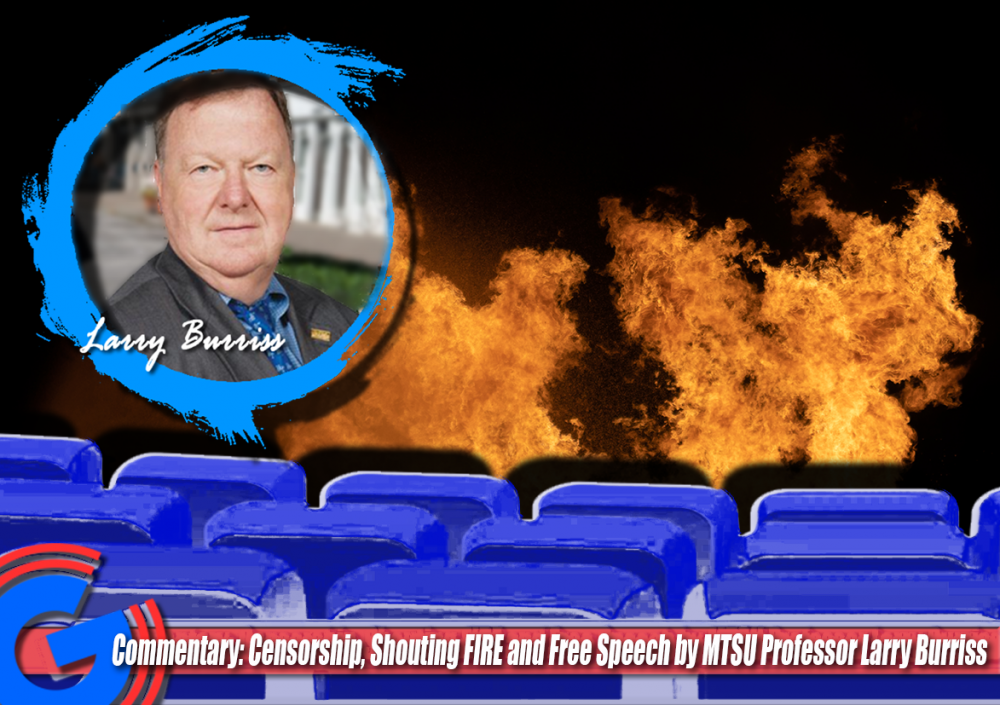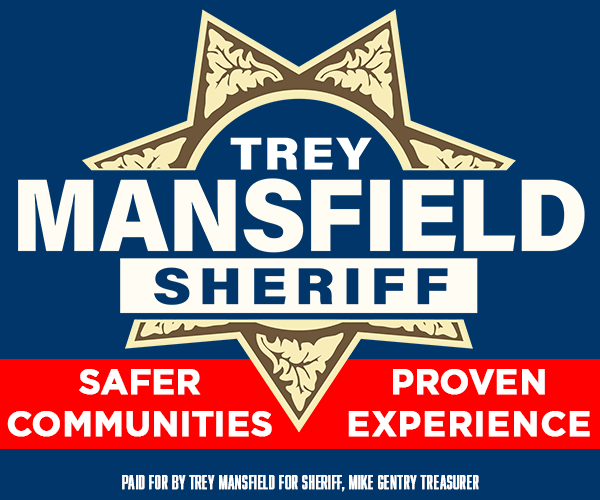Commentary: Shouting FIRE in a crowded movie theater when there is no fire, is a bad move. With more on this top and how it coincides with free speech and censorship, here's MTSU Professor Larry Burriss...
Commentary – Verbatim: “I'm always amazed at how two people can take the same set of facts and come to two different conclusions. Or use the same set of facts to prove opposite conclusions.
So you would think an opinion by the United States Supreme Court would be the final word about any legal issue. But even a simple 22-word sentence can have multiple meanings, especially if someone wants to deliberately misquote what the Court actually said.
We're probably all familiar with the famous Supreme Court quote about shouting fire in a theater.
Well, I heard that quote a lot during last week's Congressional hearings about censorship. Hearing where they tried to censor at least one witness.
Anyway, a couple of the senators, promoting censorship, kept using the famous quote, noting the Supreme Court had said you can't shout fire in a crowded theater. The argument seemed to be not all speech is protected, and the Court was supporting at least some kinds of censorship.
Except that's not what the Court said, at least not completely.
The exact quote is "The most stringent protection of free speech would not protect a man falsely shouting fire in a theater and causing a panic."
Notice there are two parts here: false speech that causes panic.
Truthful speech is protected no matter what, and only false speech causing a panic is proscribed. No panic, no punishment.
Fortunately, numerous court decisions, from the lowest to the highest, have failed to find a causal connection and between speech and bad results.
Of course, if you only cite part of the quote, it makes it sound as though some, perhaps many, kinds of speech can be suppressed.
In the case of the recent Congressional hearings, the “false” part was the ever controversial Covid vaccinations and restrictions.
Notice also the “panic” part of the theory. While it’s true all kinds of speech can make people upset, panics are generally public, and I don’t recall any kind of speech causing the general public to respond in a panic.
The Rundown - The author of the commentary is pointing out that the famous Supreme Court quote about shouting fire in a crowded theater is often misquoted to support censorship. The full quote actually says that "The most stringent protection of free speech would not protect a man falsely shouting fire in a theater and causing a panic." This means that only false speech that causes panic is not protected by the First Amendment. Truthful speech is always protected, no matter how controversial it may be. The author goes on to point out that there have been numerous court decisions that have failed to find a causal connection between speech and bad results. This means that just because someone says something that you disagree with or that makes you upset, it doesn't mean that their speech should be censored. The author concludes by saying that we should always be careful when we hear someone quoting something, to make sure that they are using the actual statement in the way the speakers intended.
All said, "shouting fire in a crowded theater" quote is often misquoted to support censorship. It's important to remember that the First Amendment protects all speech, even speech that we find offensive or disagreeable. We should only censor speech that is false and that causes a clear and present danger.
About Dr. Burriss - Larry Burriss, professor of journalism, teaches introductory and media law courses. At the graduate level he teaches quantitative research methods and media law. He holds degrees from The Ohio State University (B.A. in broadcast journalism, M.A. in journalism), the University of Oklahoma (M.A. in human relations), Ohio University (Ph.D. in journalism) and Concord Law School (J.D.). He has worked in print and broadcast news and public relations, and has published extensively in both academic and popular publications. He has won first place in the Tennessee Associated Press Radio Contest nine times. Dr. Burriss' publications and presentations include studies of presidential press conferences, NASA photography, radio news, legal issues related to adolescent use of social networking sites, legal research, and Middle Earth.
Dr. Burriss has served as director of the School of Journalism, dean of the College of Mass Communication and president of the MTSU Faculty Senate. He was appointed by Gov. Phil Bredesen to serve on the Tennessee Board of Regents. He was a lieutenant colonel in the U.S. Air Force and served on active duty in Mali, Somalia, Bosnia, Central America, Europe and the Pentagon.






